Protect sport for women and girls
We are winning in sport. The most popular sports for female participation in the UK have all restored a protected female category for competition. But there’s still work to be done…

What’s the problem?
The female category in sport is an inclusion measure. It gives girls and women the opportunity to participate, compete, excel and win. Female athletes at every level lose out when they have to compete with and against males.
But the female category has been opened up to male athletes who identify as women, on the basis of weak evidence and guidance to prioritise “inclusion” ahead of fairness, as explained here.
This affects both competitive sport and recreational activity organised by sex, such as women-only swimming sessions or bike rides. Permitting men to self-identify as women to access toilets and changing rooms is also a deterrent for women and girls, as this report shows.

What’s the solution?
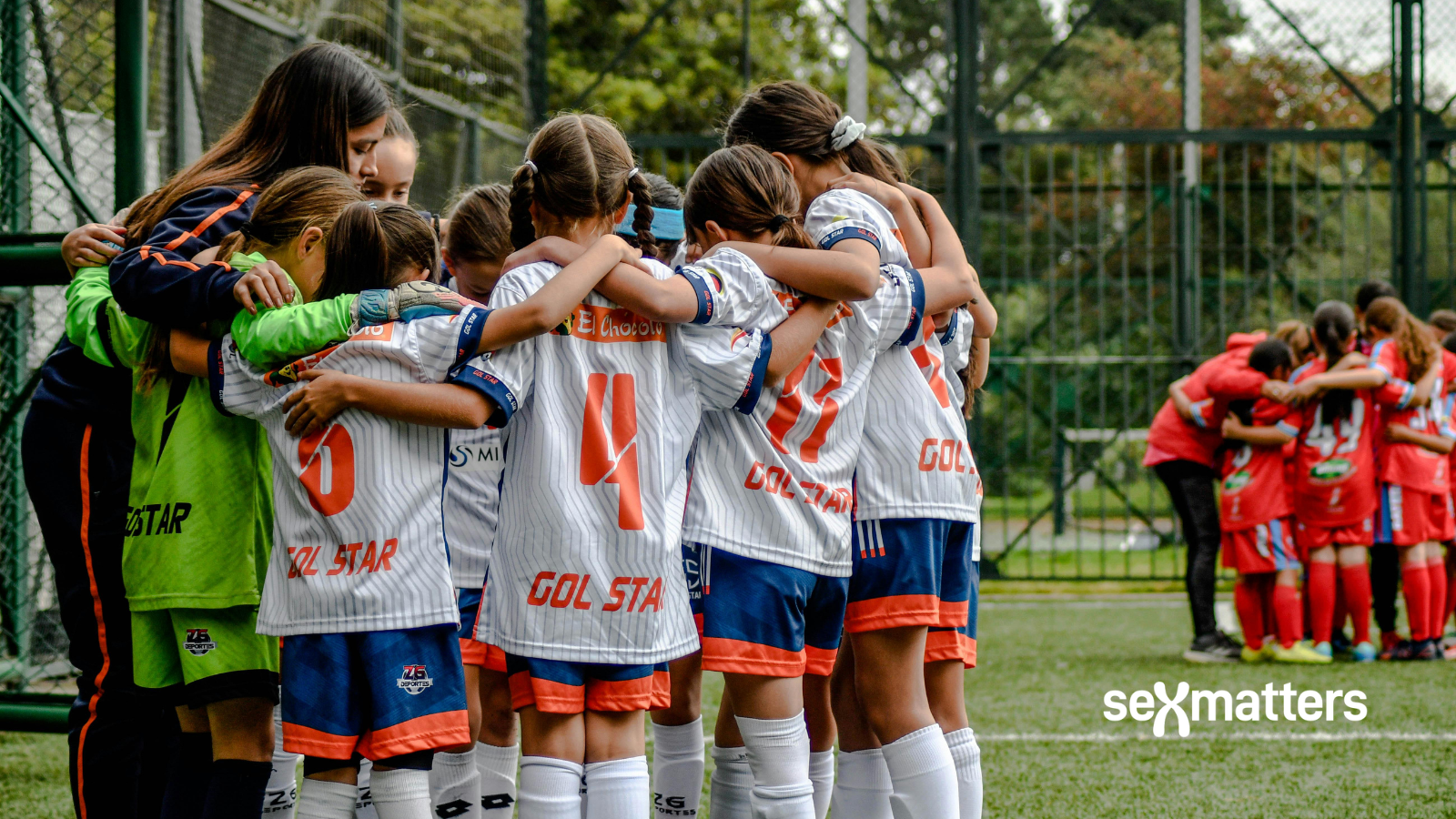
The UK Sports Councils have provided guidance that, in any sex-affected sport, male inclusion in the women’s category cannot be fair for women and girls. In most sports, the simple solution is to restrict the women’s category to those born female and broaden the men’s category to be open so there is a place for everyone.
It is lawful under the Equality Act section 195 to do this based on sex at birth for “a sport, game or other activity of a competitive nature” which is: “a gender-affected activity… a sport, game or other activity of a competitive nature in circumstances in which the physical strength, stamina or physique of average persons of one sex would put them at a disadvantage compared to average persons of the other sex as competitors in events involving the activity.”
The Supreme Court judgment in For Women Scotland v The Scottish Ministers reinforced this position. It also stated that a single-sex service must exclude everyone of the other sex. This means that services or spaces provided for “women including transwomen” have no basis in law.
What can you do?

Competitive sport
You can check which sports have restored fairness for women and girls on our sport policies page. If your sport has not yet done so, write to your governing body asking it to fix this.
If you or someone you know has been affected by male inclusion in a women’s sporting event, whether competitive or not, please let us know. Most sport governing bodies are not monitoring this, and claim there is no problem. We can tell them that is not so.

Recreational sport
The Equality Act Schedule 3 section 27 allows single-sex or separate-sex provision of services if it is a proportionate means to a legitimate aim, such as if “a joint service for persons of both sexes would be less effective”. This is the rationale for women-only swimming sessions and exercise classes, and for programmes to increase female participation, such as British Cycling’s Breeze rides and PaddleUK’s ShePaddles.
Following the Supreme Court judgment, these should not be mixed-sex if they are described as being for women.

Changing rooms and toilets
Any facility labelled male/female (or any variant of that such as men/women, or with signs representing men and women) should not be used by the other sex. Many sports bodies have policies suggesting that people should use the facilities that match the gender they identify with, or that she should choose the facilities they feel most comfortable with. These policies are unlawful if they include facilities marked as single sex. Leisure centre operators also have such policies, whether in writing or simply in practice. These can all be called out as unlawful following the Supreme Court judgment.
It is not obligatory for a service-provider to provide single-sex facilities but if they are labelled as such then it is not lawful to permit them to be mixed sex in practice.
Take action now
-
Action

Help us to protect women’s sport
If you don’t tell sports governing bodies what you think, they won’t know!
6th November 2024
-
Action

Tell us how male inclusion in women’s sport has affected you
Across the country, women and girls are facing unfair, and sometimes unsafe, sport because of trans-identifying male players who...
11th October 2024
Updates
-
Update
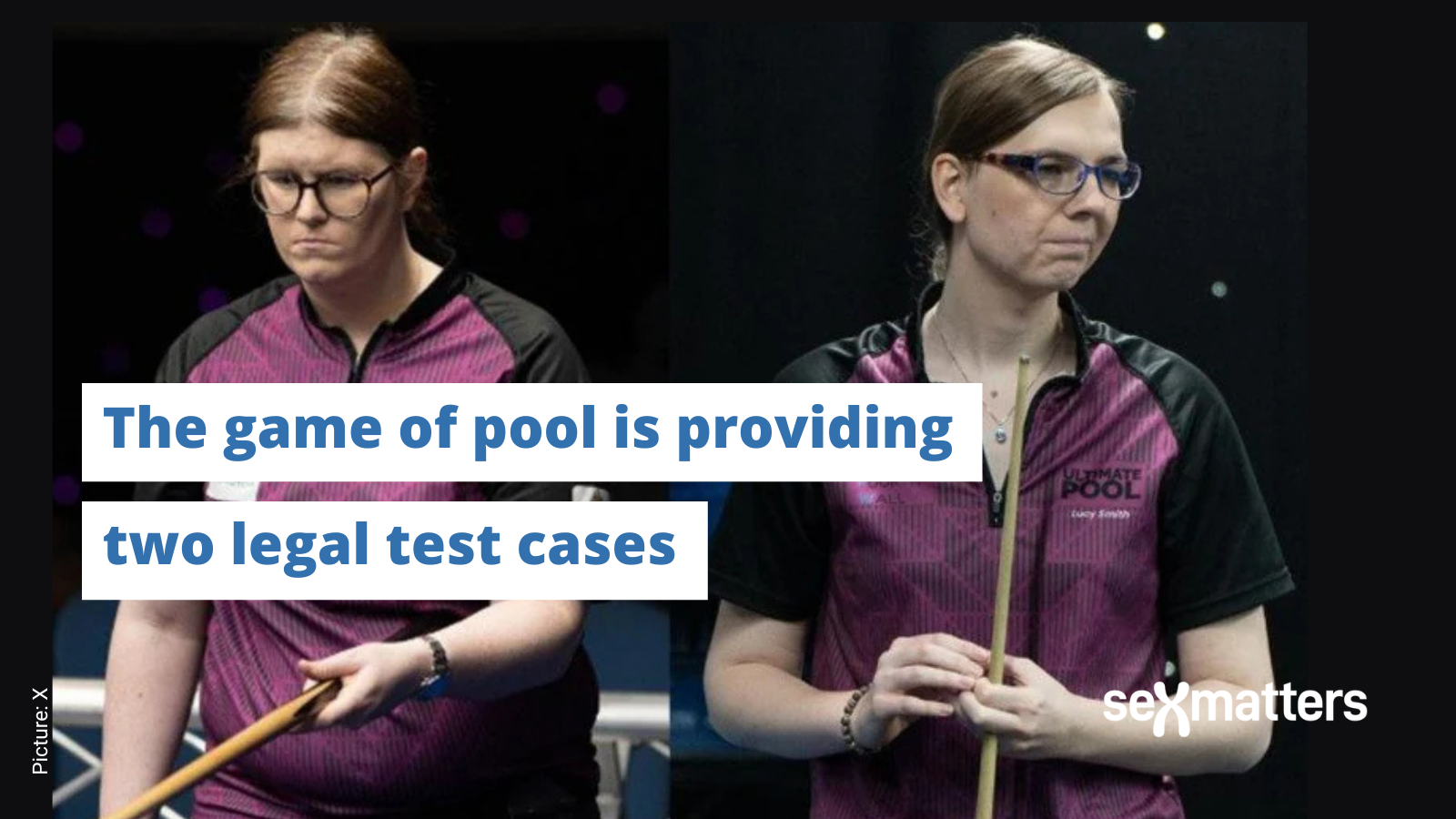
What does the Equality Act mean for women’s sports?
There are two ongoing cases in the same sport, pool. Women’s tournaments are run in the UK by Ultimate...
8th April 2025
-
Update
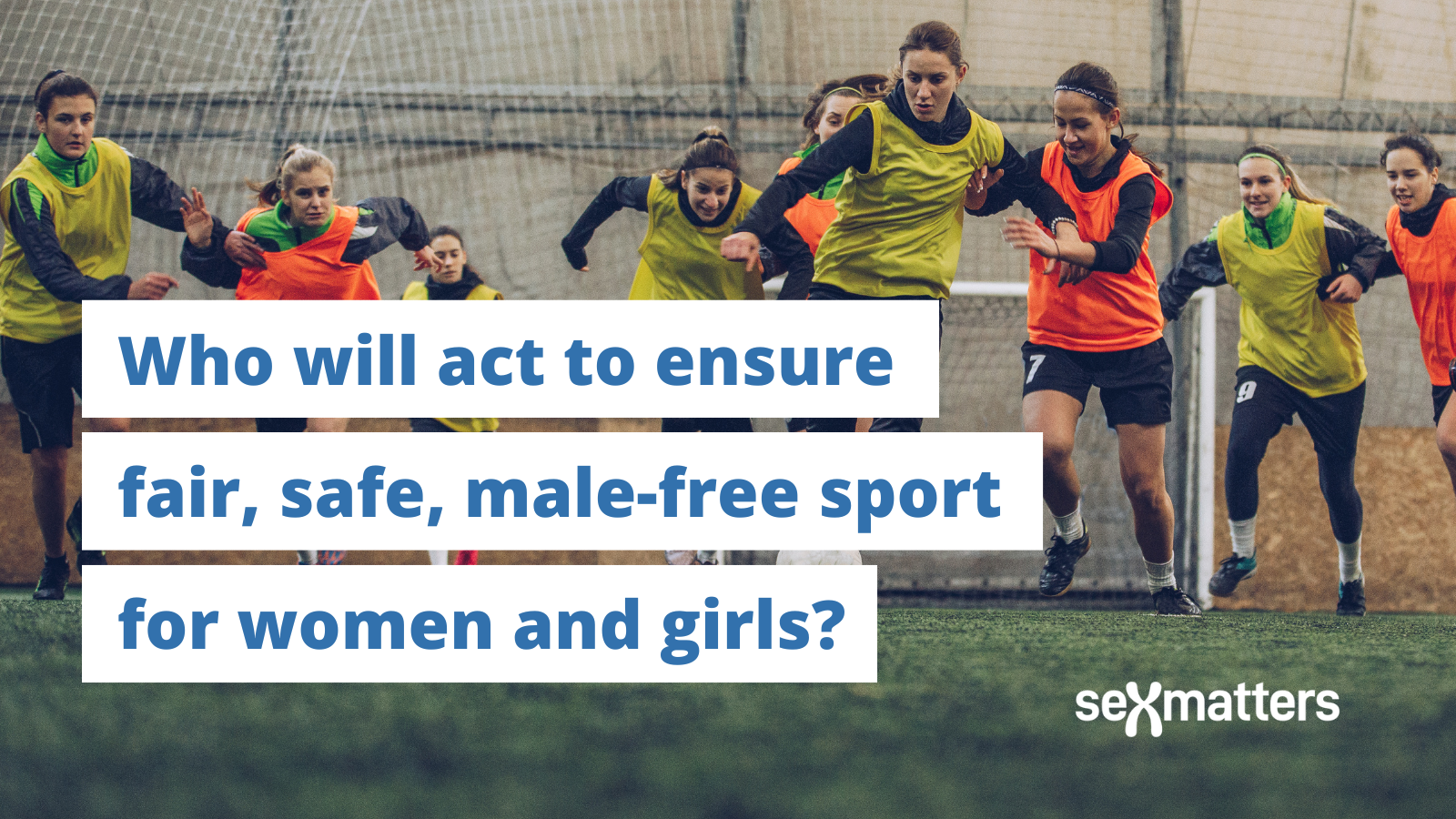
Fairness for women in sport is only for the lucky few
Sports governing bodies are continuing to ignore established facts and guidance about sex differences in sports. Even some sports...
30th January 2025
-
Publication
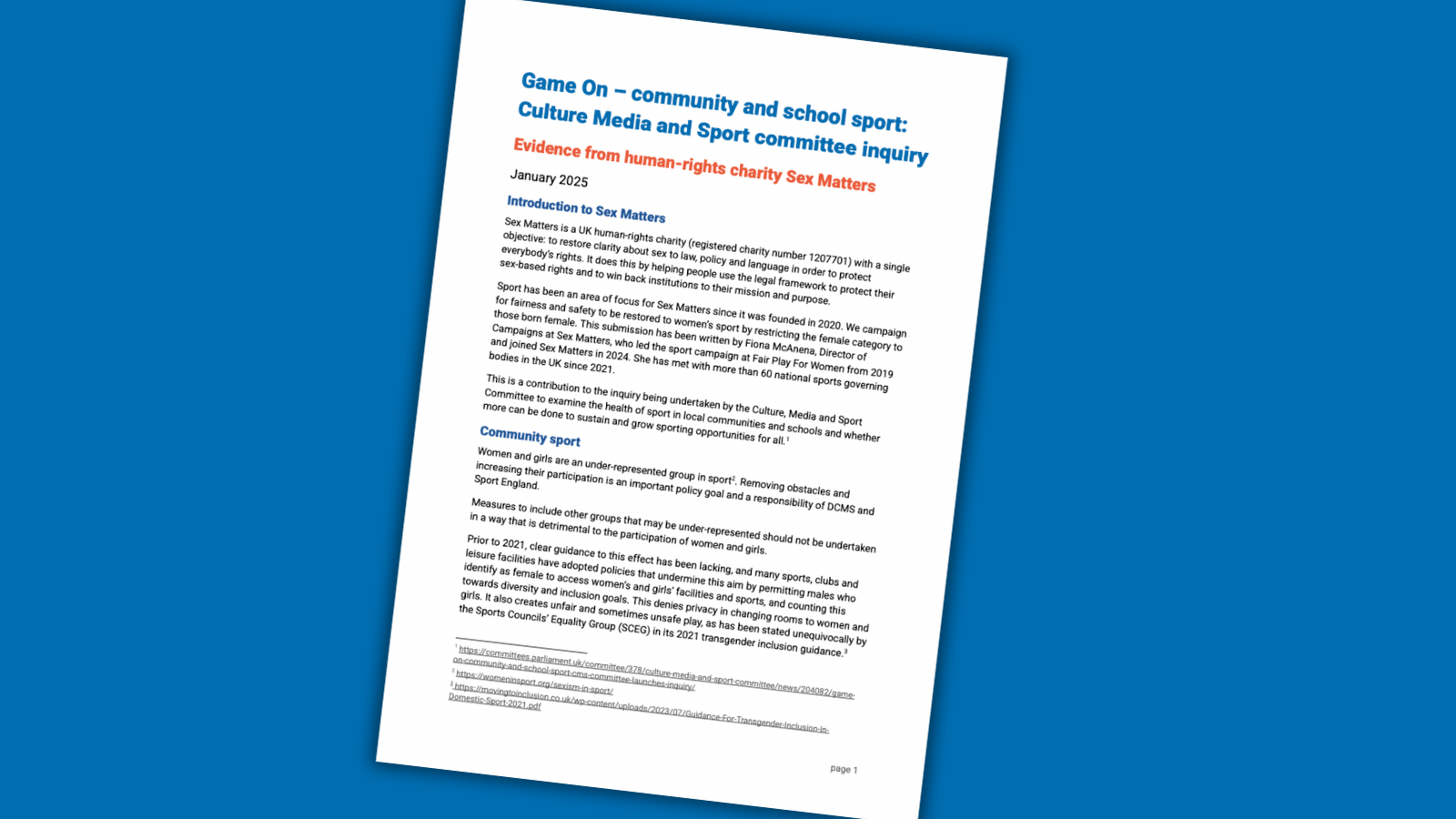
Game On – community and school sport: Culture, Media and Sport committee inquiry
Sex Matters’ contribution to the inquiry being undertaken by the Culture, Media and Sport Committee to examine the health...
30th January 2025
-
Update
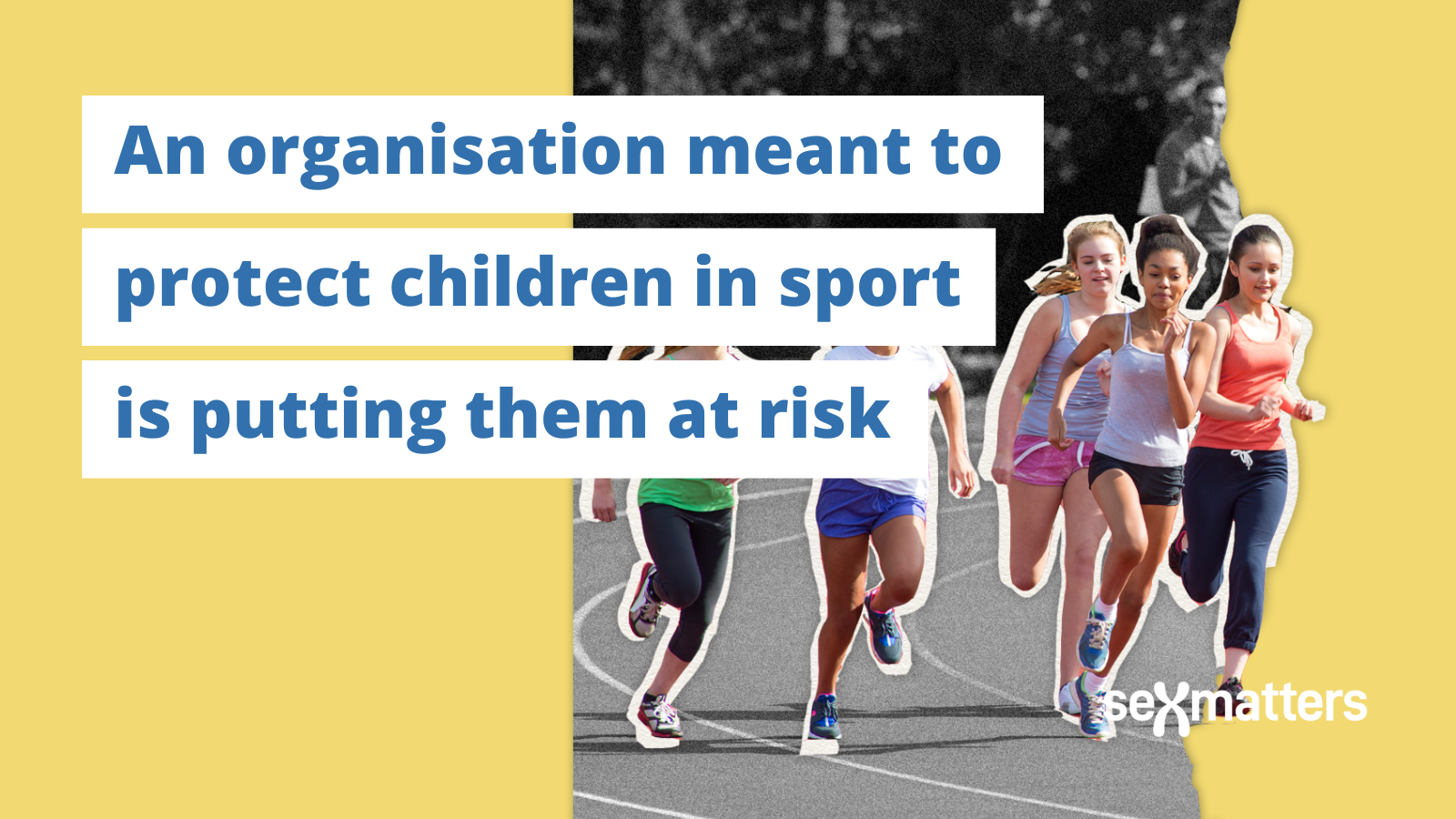
When child safeguarding meets gender ideology in sport, children are the losers
An organisation meant to protect children has built gender-identity ideology into its policies, putting children at risk. There is...
19th September 2024
Resources
-
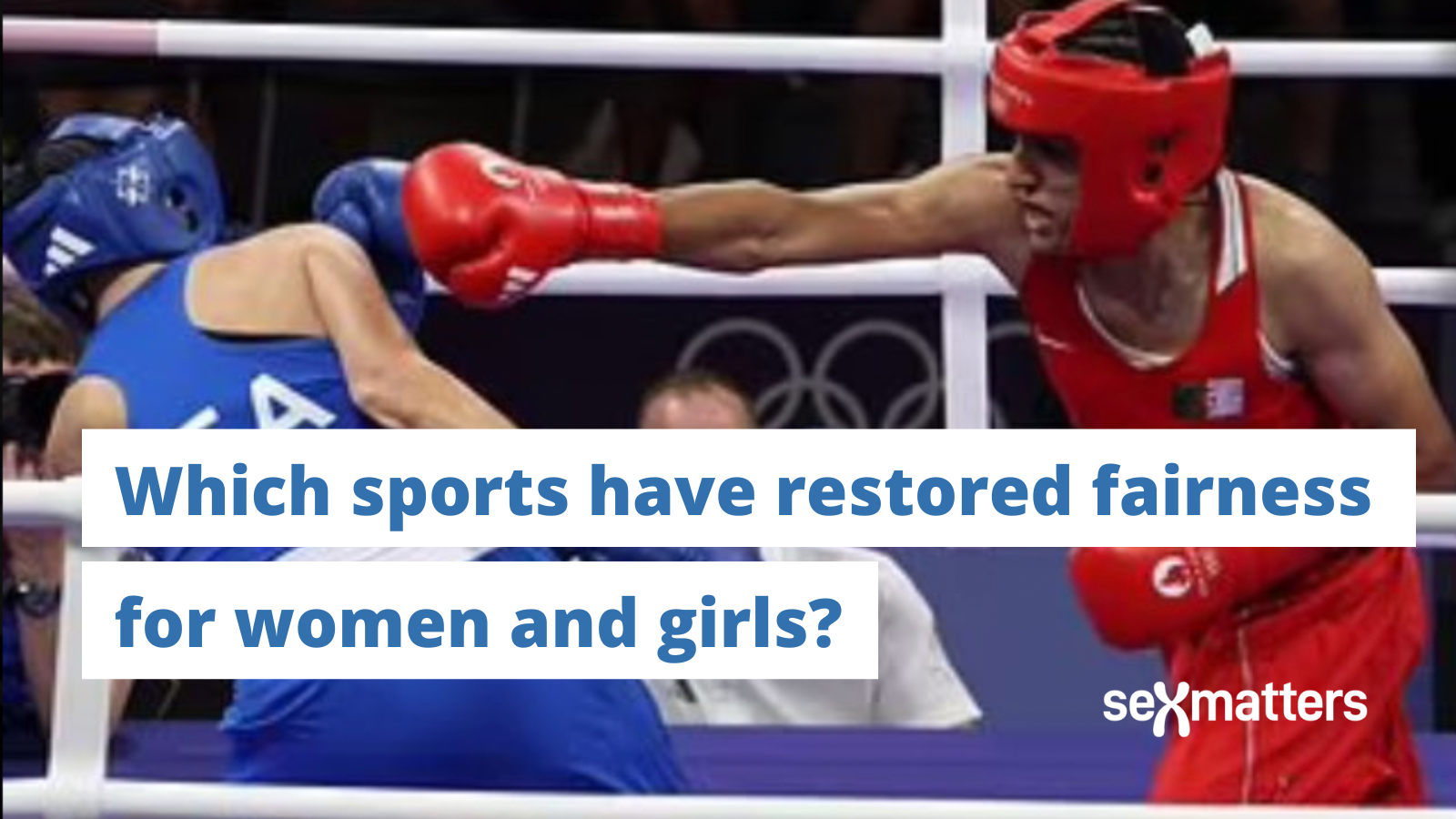
Sports policies for competition
Which sports have restored fairness for women and girls? Keep track of the state of play in both national...
6th August 2024
-
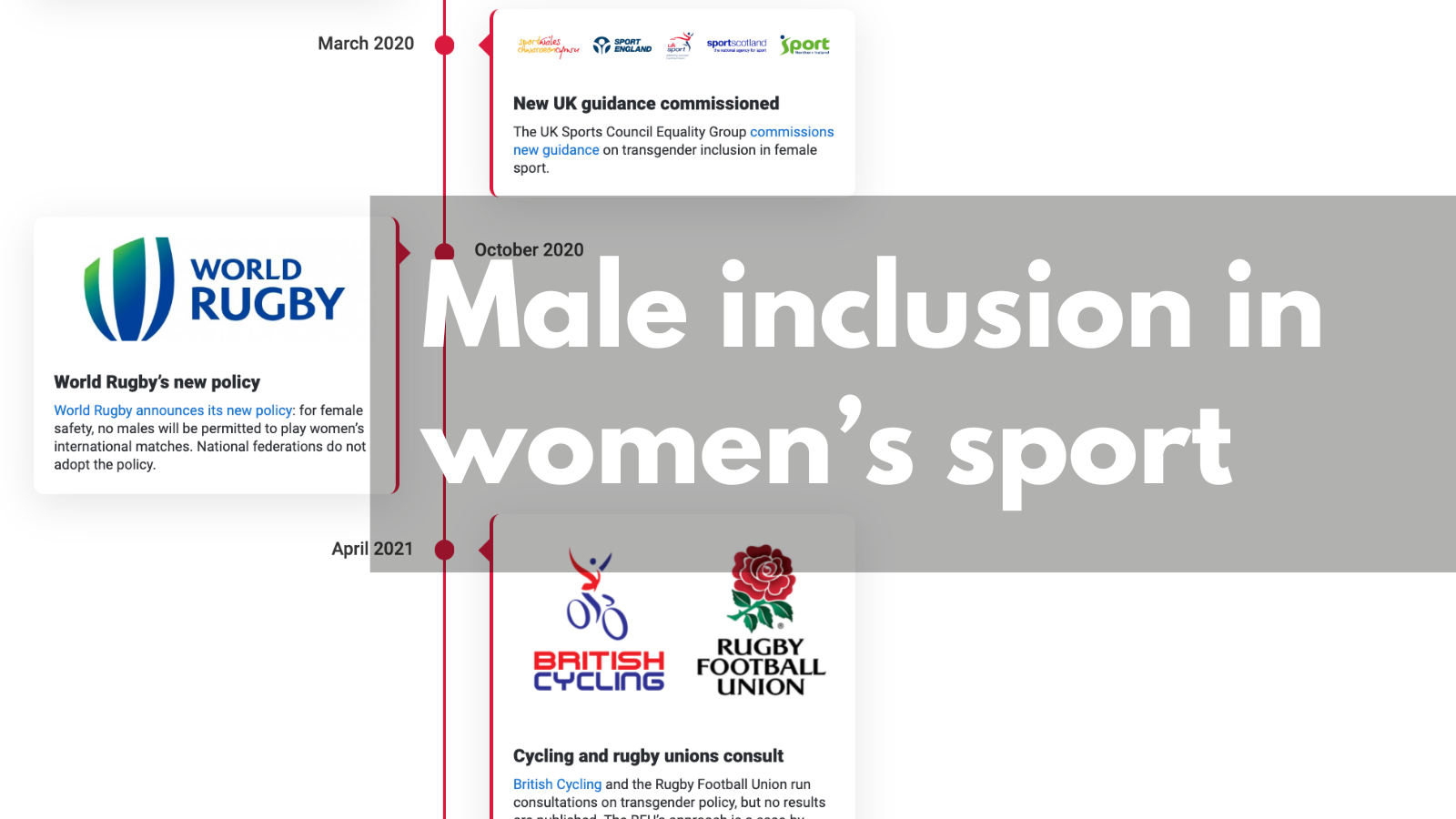
Sports timeline
A timeline on transgender policies in sport showing the decisions of sports governing bodies that affect male inclusion in...
20th June 2024
-

How trans inclusion in sport is harming women and girls
The harms caused include unfair competition and demoralisation; losing out on records, rankings or on opportunities to participate; no...
13th January 2024
-

Guidance for transgender inclusion in domestic sport
September 2021 report based on the latest research, evidence and studies from the Sports Councils Equality Group, made up...
8th November 2021